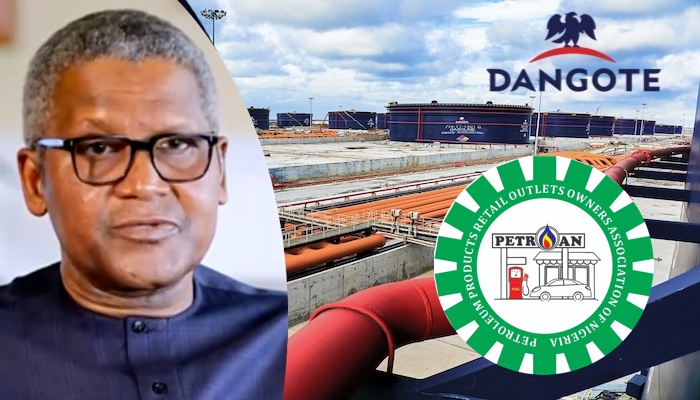Nigeria’s largest industrial conglomerate, the Dangote Group, is at the centre of escalating tensions with organised labour, raising concerns about the stability of the nation’s energy sector and broader economy.
The Nigeria Labour Congress (NLC) has accused Dangote of wage suppression, union-busting, and monopolistic practices, warning that failure to reform could trigger nationwide industrial action.
The Bigger Picture: Monopoly Meets National Security
Dangote Refinery, positioned as a strategic asset in Nigeria’s energy security plan, is now under scrutiny for practices that labour leaders say threaten both economic fairness and workers’ rights. With fuel supply and pricing already volatile, any disruption at the refinery could have ripple effects across transport, manufacturing, and household energy costs.
What Labour is Saying
-
Workers allegedly earn below industry standards, despite the refinery’s strategic importance.
-
Reports of forced membership in “company unions” undermine independent labour representation.
-
Heavy reliance on casual and expatriate labour raises questions about Nigeria’s job security and local capacity development.
Why This Matters
The standoff highlights a critical governance dilemma: how to balance Dangote’s market dominance with the need for competition, fairness, and labour justice. If unresolved, the confrontation risks:
-
Supply chain disruptions in petroleum products.
-
Heightened inflationary pressure, with transport and food costs rising further.
-
Regulatory backlash, as government agencies face calls to enforce labour and competition laws.
NLC’s Red Alert
NLC President Joe Ajaero framed the dispute as a fight for Nigeria’s economic soul:
“This is not charity. Monopoly that exploits workers and citizens is economic sabotage, not nation-building.”
With its affiliates now on “Red Alert”, the labour movement is preparing for what could become the most consequential test of Dangote’s dominance in Nigeria’s economy.

